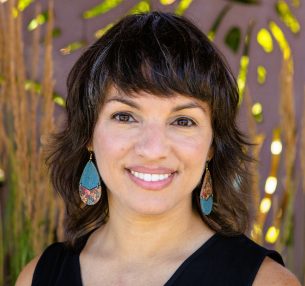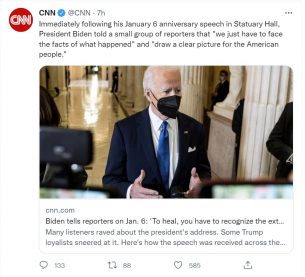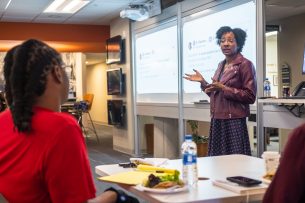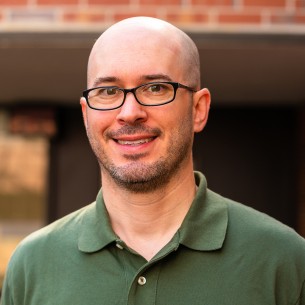For more information, visit the Consortium on Trust in Media and Technology website »

The University of Florida College of Journalism and Communications (UFCJC) and Levin College of Law today announced that Mónica Guzmán has been named the inaugural McGurn Fellow for Media Integrity and the Fight Against Disinformation. The fellowship, funded through a $2 million commitment from UF alumni Linda and Ken McGurn,…
Read more
Today’s abundant content from linear media, tech companies, influencers and others presents a growing challenge in measuring the trust consumers place on these different media platforms/outlets. Researchers sought to define a media brand and its trust elements.
Read more
Current efforts to increase trust by fact-checking and increased transparency are respectable but minimally effective. They largely offer tactic over strategy, disregarding a major player in perspective-building: where people live.
Read more
With the reality of Elon Musk's hostile takeover of Twitter setting in, many individuals, news outlets and communities are left in the wreckage of the social media giant.
Read more
Janet Coats, Consortium on Trust in Media and Technology managing director, discusses the importance of media literacy and its impact on free expression and civil discourse.
Read more
As artificial intelligence technology has advanced, its use has expanded to a range of industries, including broadcast news. AI could be used in place of a human weather newscaster, for example, if a human is not available during a weather emergency. Yet little research exists that looks at how people perceive AI newscasters.
Read more
As part of its comprehensive effort to address the growing crisis in trust, the University of Florida College of Journalism and Communications (UFCJC) today announced it has received a $2 million endowed gift to establish The Dianne B. Snedaker Chair in Media Trust. The gift will fund a new research…
Read more
Commenting on social media posts is an increasingly popular way to participate in social media news. But Individuals with strong preexisting attitudes about an issue tend to perceive media coverage as biased against their point of view, and this “hostile media effect” is believed to be driven in part by social identity.
Read more
One of the very few unifying propositions across all U.S. ideologies is that young people need more effective civics education. Given that widespread consensus, it might be expected that educators and policymakers would be tightly embracing the curative of scholastic journalism. But that is rarely the case.
Read more
Journalism Assistant Professor Rachel Grant is Research Director for the Narrative Justice Project, a tactical response to popular media conversations around stereotypes and conversations around racism. We interviewed Dr. Grant on Nov. 3, 2021 about the project and findings from the research so far.
Read more
University of Florida College of Journalism and Communications Public Relations Assistant Professor Jay Hmielowski is the co-author of “Laugh, But Don’t Seek: A Reassessment of the Gateway Hypothesis” published in the International Journal of Communication, Vol. 15, 2021. Hmielowski and Michaele Myers examined the gateway hypothesis which argues that political…
Read more
The primary function of “social robots” is to facilitate communication with humans, and is being applied in a variety of industries, including education and physical and mental health. Dr. Kun Xu is studying how to enhance that communication through voice, gestures and other social cues.
Read more